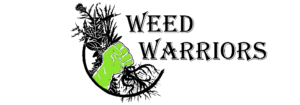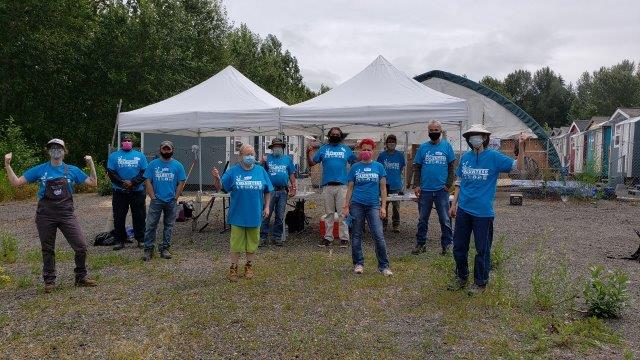
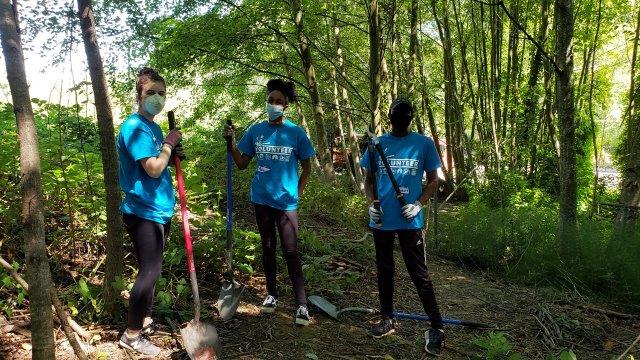
Weed Warriors Experiential Learning Program
Removing Noxious Weeds near the Myer Way Wetlands with Camp Second Chance June 2020 – December 2025
Experiential Learning is learning while doing. This environmental program offers participants ability to develop knowledge from a real-life work experience in an environmental profession. This program broadens your skills base which can expand opportunities for a future job or career.
-
- Develop knowledge on the environment
- Broadens your skills base
- Expands opportunity for employment
Program Components:
Participants will complete at least 10 to 20 hours, depending on the number of participants, including a program orientation and an on-line workshop trainings on noxious weeds in June before participating in the “boots on the ground” projects near Camp Second Chance, which are tentatively scheduled in the summer beginning in July and/or fall, depending on the weather. Graduates of this program are inducted into the Order of the Knights and Ladies of the Living Forest.
-
- Program Orientation
- 1 or More On-line Workshops/Trainings on Noxious Weeds
- 4 or More Boots on the Ground Weed Removals
Required of Camp Second Chance participants:
Participants that receive stipends will participate in on-line weed identification trainings, participate in “Boots on the Ground” projects identifying and removing noxious weeds near Wetland #1 of the Myers Way Parcels, conduct research independently about weeds outside of the online class for one hour or more on their own demonstrating self-preparation skill, and will work collaboratively with classmates, aka project-mates, in a team effort in while social distancing during COVID-19 restrictions, and will work with a volunteer non-profit organization in partnership with other community volunteers. All these skills, gained though this experiential learning program, demonstrate competency and capabilities that can be listed on future job applications or resumes. Stipends are awarded at $15.00 per hour.
-
- Attend and participate in on-line weed identification workshops/trainings
- Participate in “Boots on the Ground” projects
- Demonstrate preparedness and interest
- Work collaboratively with teammates and with community volunteers
- Agree to and follow COVID-19 social distancing protocols
Experiential learning can help broaden or refine your career interests, or even identify a potential future career!
Stipends to participants in the Myers Way experiential learning project are awarded to participants in partnership with the Weed Warriors Nature Stewards Program, Camp Second Chance, and the Low Income Housing Institution. Partners include Earth Corps, National Wildlife Federation, and others.
Acknowledgement of Funding in 2020-2023:
“Support for Invasive Weed Species Removal near Myers Way Wetlands is provided by the Puget Sound Stewardship and Mitigation Fund, a grantmaking fund enabled by Puget Soundkeeper Alliance’s Clean Water Act enforcement program, which protects the health of Puget Sound and its residents by enforcing federal water quality laws against serious violators. The Fund’s goal is to mitigate past pollution runoff by supporting community based efforts to protect or improve the water quality of Puget Sound. The Rose Foundation for Communities and the Environment administers the Fund to enable community-based watershed stewardship in close nexus with the specifics of the enabling settlements.”
Acknowledgement of Funding for 2024:
Support for the restoration project in 2024 comes from the King County WaterWorks Grant Program in partnership with the King Conservation District.
Tips for Success
- Keep a journal of your activities and thoughts during your program experience.
- Include descriptions of your work, interesting on-line articles, reflections on your interests, ideas, and strengths.
- Send group and/or individual photos of and comments to Grace Stiller for reporting to the grant funder
- Save contact information and materials for later reference.
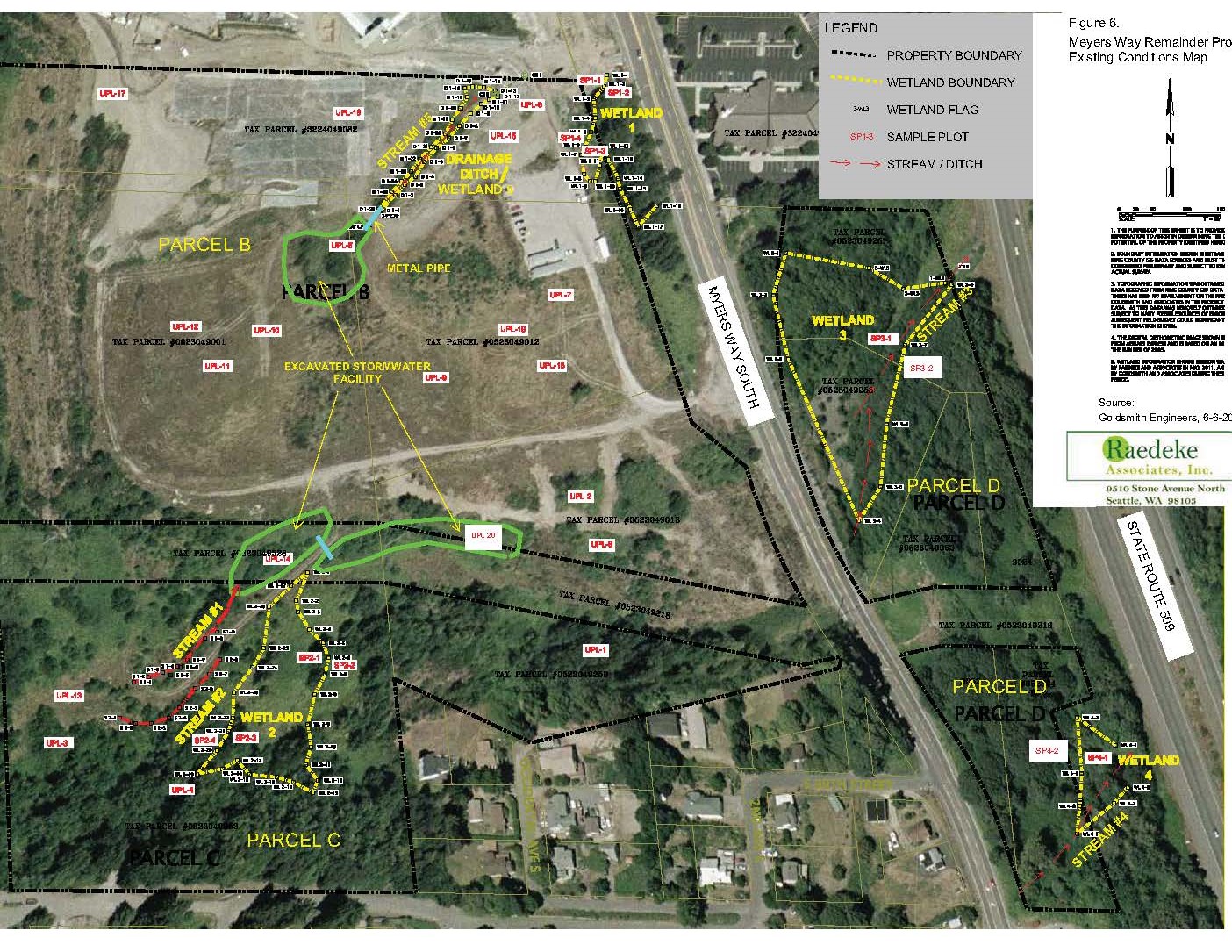
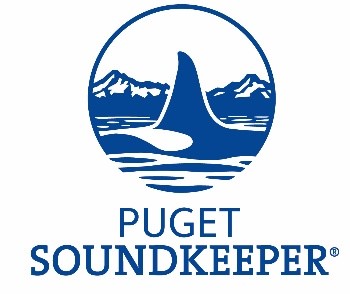
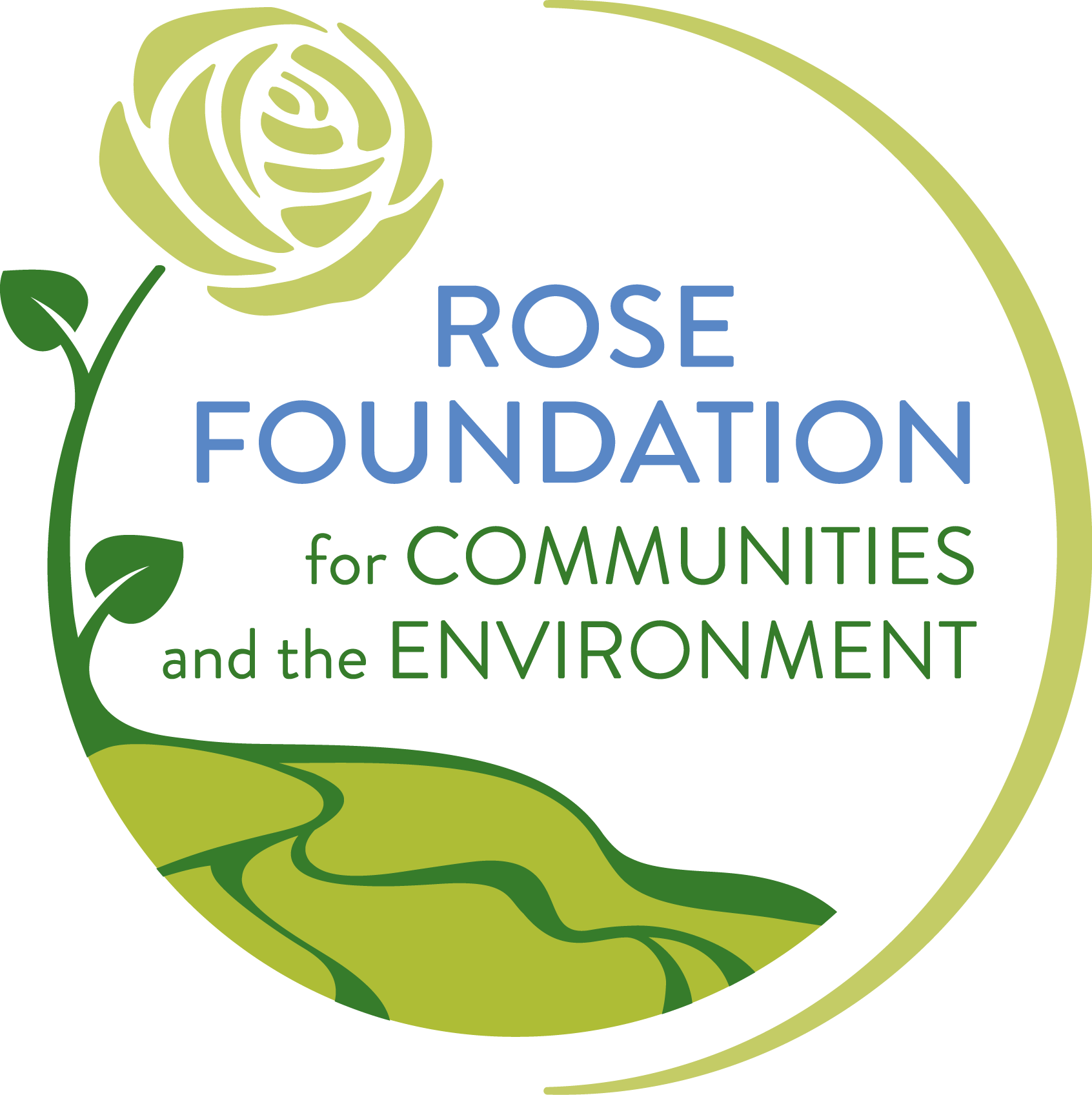
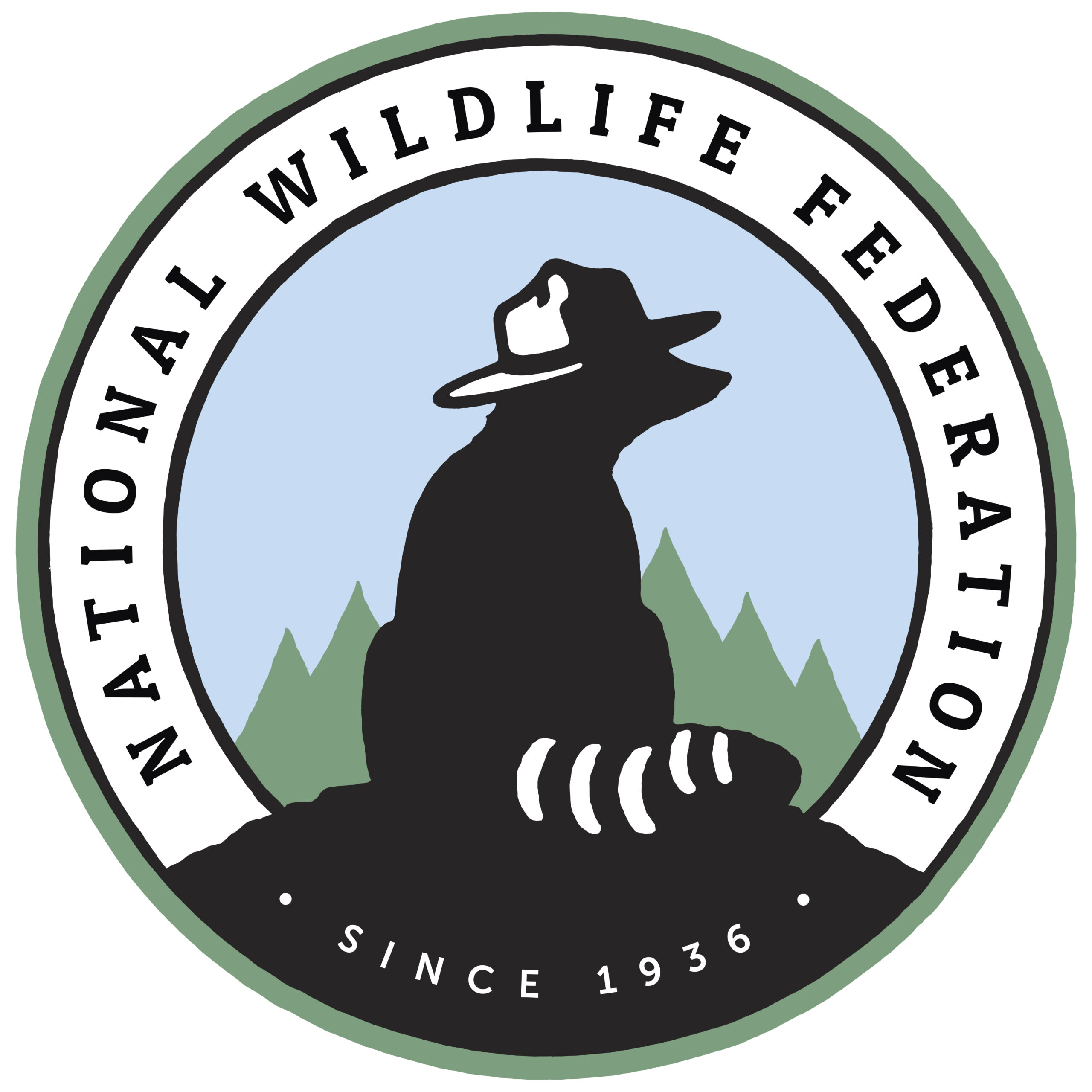


![]()
